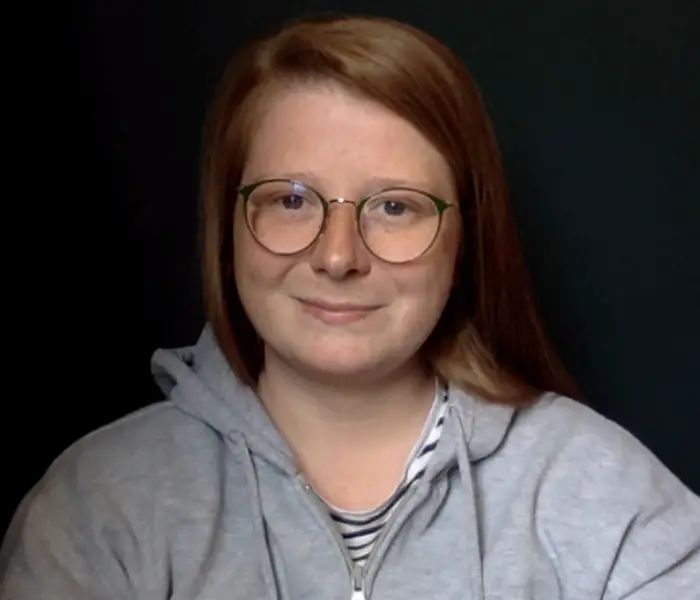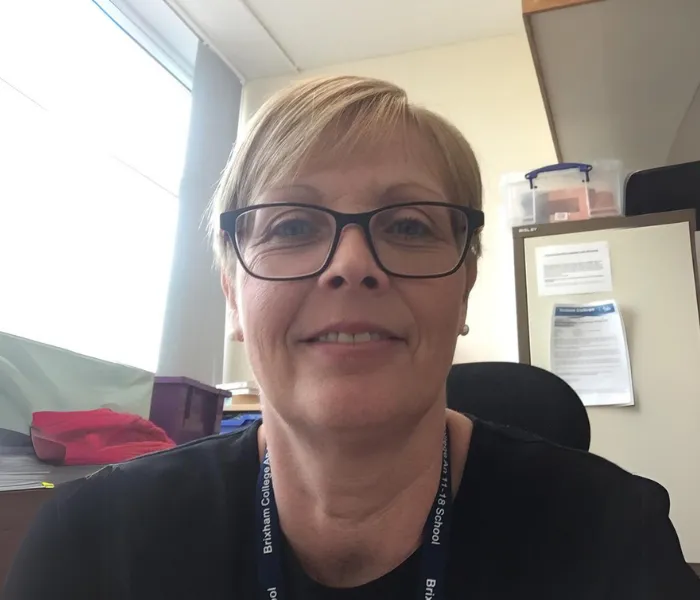Caroline Dodsworth – CPT3A & DPRW
Caroline Dodsworth currently works as a freelance SEN consultant, assessor and tutor. Working across a variety of maintained and independent schools as well as working independently as a practitioner. Caroline works in multiple schools across London and Dubai.
With a special interest in Dyslexia, Caroline completed her MA in 2014 entitling her dissertation, “Teaching Strategies for Dyslexic Writers.” Having formerly completed Certificate in Psychometric Testing, Assessment, and Access Arrangements and more recently our Dyslexia Professional Report Writing (DPRW) module, we wanted to find out what Caroline thought of her time studying with Real Training.
What made you choose Real Training over other options?
Real Training offers the best value for money courses, leading to recognised professional qualifications. A former colleague recommended Real Training to me when I was considering undertaking CCET a few years ago – CCET is the first component of the CPT3A qualification.
What was your experience of learning with Real Training?
The online courses offered by Real Training allowed me to study anywhere in the world. This was especially important as I have dual UK and UAE residency. The assignments in the Real Training modules are broken down into a series of smaller tasks, which assist you with the larger assignments. I found this helpful as it prevents the feeling of becoming overwhelmed, which is particularly important when combining study with a busy working life.
Campus Online is structured in a way that allows you to monitor your progress throughout your chosen course. Showing you how much of the course you have completed and how much you have left. Again, this is helpful for planning your assignments around a busy workload. The library resources are excellent and it is helpful to be able to see the previous work of other delegates.
The tutors at Real Training are responsive and supportive. They always provide constructive feedback and recognise that their students are often long-standing professionals.
How has the course helped make an impact at school?
The CPT3A course (made up of both CCET and AAC), that I undertook several years ago, had a direct impact on the school where I was working as a SENCO. It meant that as a qualified access arrangement assessor, the access arrangements testing could be brought in-house. This saved the school time and money.
Having recently completed the DPRW course, in addition to my previous qualifications, I am now fully qualified to provide full diagnostic assessments. These provide a much more holistic and rounded view of a student. Additionally, this will assist in ensuring that they receive the most appropriate intervention. Working independently also means that these skills will be applied widely.
How has the course helped develop you as an educational professional and what do you hope to achieve with the new knowledge/skills in the future?
The DPRW module has deepened my knowledge of assessment when to seek the support of other professionals and the need for a consistent format in report writing.
I hope to apply these skills for the benefit of students both in schools and independently in the future.
Lauren Millar – CPT3A
Lauren Millar is the Education Support Co-ordinator for the Northern Regional College in Northern Ireland. They are a Further Education College offering a comprehensive range of qualifications for school leavers, full and part-time courses for adults, apprenticeships, professional qualifications and university accredited courses.
We asked Lauren if she has any special interests surrounding SEND, and she said, “I am interested in Inclusive Education, particularly in identifying and reducing barriers to Education. I work with a cohort of students who have often disengaged in mainstream school. I do have a personal interest in Dyslexia and Autism as well.”
Completing the Certificate in Psychometric Testing, Assessment, and Access Arrangements qualification with Real Training this year, we spoke with Lauren to see what she made of the course and studied with us.
What made you choose the Real Training Course over other options?
Real Training was the best option for me as it gave me the flexibility to study around my working commitments. I originally wanted to complete the course to become an assessor for Access Arrangements but I enjoyed gaining in-depth knowledge about psychometric testing.
What was your experience of learning with Real Training?
Real Training provided excellent tutor support and gave me the tools and confidence to succeed in using this qualification to greatly advance the service we provide.
How has the course helped make an impact at school?
This course has greatly benefitted the service we provide in Education Support as it has increased the range of services I can offer to the students. I asked Stephen McCartney, our Head of Student Services, how he feels my completion of the course has had an impact. He said;
‘Apart from extending the knowledge of my staff, this course has allowed me to extend the services we provide to students who require Access Arrangements for exams. To have this capability on campus means that we can respond to student’s needs much more quickly and effectively. The quality of the provision we now offer is reflective of that provided by the course and we have been pleased to have been able to access such training’
How has the course helped develop you as an educational professional and what do you hope to achieve with the new knowledge/skills in the future?
Having completed the course, I have been able to reflect back on my own professional practice. Not only regarding Access Arrangements but how I work with and support students who have a range of needs. This has contributed to the service I provide within the College, not only about Access Arrangements but in all I do.
Stephen Oswald – CPT3A
When Stephen Oswald moved to the UK he sought ways of expanding his experience in primary and secondary teaching. He found working with young people post 16 was a refreshing challenge.
He is currently a Specialist Assessor and SENCO at a large multicultural sixth form college in south-east London and Kent, and has recently completed the Certificate in Psychometric Testing, Assessment, and Access Arrangements.
What made you choose Real Training over other options?
When the college where I worked was taken over by a large collegiate early in 2013, more specialist assessors were needed as soon as possible. My senior colleague recommended Real Training for their efficiency, adding that I could qualify within a year.
What was your experience of learning with Real Training?
My colleague’s advice was sound. As soon as funds were available, I applied for CPT3A and finished this course ahead of schedule. Not long after qualifying, JCQ stipulated that the assessor’s qualification must be at level 7 and should reflect 100 hours of practical input. It was really helpful when Real Training re-issued my certificate in 2015 – with a supporting letter- to confirm that these requirements indeed have been met.
Throughout all courses with Real Training, I really benefited from the prompt formative feedback on submitted work. The online programmes are easy to navigate, and progress can be self-monitored instantly. It is impossible to miss a component, which actually did happen when I followed another course with a different provider – luckily, they gave me an extension…
How has the course helped make an impact at school?
My CPT3A course has helped me to appreciate that a substantial number of young people in every cohort need an extra depth of understanding and guidance. For that reason, I continued studying ASD and Dyslexia at the Post-Graduate Diploma level. This extension has helped greatly in finding ways of making ILPs and EHCPs work as secondary school pupils transfer through to sixth form. Annually, I take care of around 45 EHCP reviews across sites.
How has the course helped develop you as an educational professional and what do you hope to achieve with the new knowledge/skills in the future?
Real Training has better equipped me for my role as a Specialist Assessor and SENCO. Per year I have meetings and administer assessments with over 300 students across sites. It is very rewarding playing a small part in the students’ progress and assisting them in overcoming obstacles – always realising that ultimately it is their endeavour that sees them through in triumph.
Real Training has also prepared me to lead insets and training – for new teaching staff in particular. About meeting the needs of students with disabilities, learning difficulties and EAL. I have also been able to specialise in writing and illustrating training material for in-house use, aiming for the greatest clarity possible, through brevity, logic and humour.
At present, most work in Additional Learning Support is done via video-link. This has for me only been possible thanks to a solid basis of practice-based training and application of skills in real-life pre-Covid, and I look forward to a safe opening up of society and seeing our students back again.
David Griffiths – NASENCO & CPT3A
David Griffiths completed the Certificate in Psychometric Testing, Assessment and Access Arrangements course (CPT3A) in 2019. He has since also completed our National Award for SEN Coordination (NASENCO).
David is currently the SENCO of a secondary school in the Midlands, he has a keen interest in psychometric testing and SEND. Read below to see how David felt about his time studying both these courses with Real Training.
What made you choose Real Training courses over other options?
Real Training was recommended to me in a SENCO network meeting. I did some research on the course, assessment material and previous student experiences. Based on what I had read, it definitely sounded well-organised and suitable for my learning style.
What was your experience of learning with Real Training?
Overall, it went above and beyond my expectations. I chose the intensive route to complete CPT3A. The face to face content was excellent and really useful. The tutors were supportive, knowledgeable and friendly. Everything was explained clearly and I received excellent feedback. Whilst studying NASENCO I found my tutor was really helpful and encouraging throughout. I received clear and concise feedback, regarding how to approach each assignment and meeting the assignment criteria. I was undoubtedly impressed and have since recommended Real Training to all of my colleagues and friends.
How have the courses helped make an impact at school?
Completing the CPT3A qualification has allowed me to conduct psychometric testing for Examination Access Arrangements. Resulting in better support for the pupils and broadening my skill set within the school.
How have the courses helped develop you as an educational professional and what do you hope to achieve with the new knowledge/skills in the future?
Studying with Real Training has strengthened my knowledge of Special Educational Needs and Disabilities.
Priya Shah – MEd SEND and Inclusion
Priyadarshana completed her BSc (Hons) Psychology in the UK in 1993 and has been teaching for nearly thirty years.
She started off working in secondary mathematics in a private British community school in Kenya and was also their dedicated SENCO. In 2005, Priya joined another school in Kenya and currently works as a high school maths teacher and learning support teacher.
Priya Shah has recently completed her MEd SEND and Inclusion and told us what it was like to study with us.
What does graduating with your master’s degree mean to you on a personal and a professional level?
Acquiring an MEd in SEND and Inclusion after twenty two years as a teacher has really raised my confidence in general. The applications have been diverse; from being able to critically analyse information, to gaining the skills to write professional reports to carrying out action research and listening to all perspectives around an idea or argument.
What made you choose the Real Training courses over other options?
I was looking to gain membership on Register for Qualified Test Users (RQTU) with the British Psychological Society (BPS). I found the CPT3A course online. As I work overseas, Real Training offered a user-friendly online platform and the turn-around time for replies to emails or queries was very quick. I also found that all the tutors I had were educational psychologists which have a lot to offer in terms of knowledge, experience and wisdom. The school that I work in then approached me and encouraged me to continue courses to achieve a Masters. And so I did!
What was your experience of learning with Real Training?
The online platform was easy to use and the readings and videos were relevant to my work, thus the experience of learning was pleasant and interesting yet very rigorous. The amount of work to be done was not insignificant, but manageable once you get organised.
How have the courses helped make an impact at school?
I have used the skills of administering standardised tests and writing reports for external exam boards from the CPT3A course and more students have benefitted from exam access accommodations.
I have utilized the knowledge and skills from the NASENCO course for my role as the Learning Support Case Manager for grade 11 and 12 and as the untitled team leader of our Learning Support department. It’s improved the way I work with the Student Support Services Coordinator of the school as well as the grade level leaders who manage the Response to Intervention framework.
The Social, Emotional Learning course was a great learning experience and the knowledge gained has enhanced my skills as a teacher and advisor. It has been particularly useful in these unusual times of COVID-19 when we went virtual.
The Enquiry-based research module was excellent as I got exposure to action research and got to investigate the efficacy of an online math intervention in terms of raising mathematical resilience of students with needs in an international setting using the RADIO framework. This has helped me as a co-teacher in math classes.
How have the courses helped develop you as an educational professional and what do you hope to achieve with the new knowledge/skills in the future?
My personal goal next academic year is to develop Social Emotional Learning in all my work in school, especially as we return to the school building after a period of virtual learning. I have already started a virtual Meditation course for students for our optional summer school. As a lifelong learner, I am learning more and more about meditation and how it helps both professionally as a teacher and in my personal life as well.
How has the experience changed your view on continued professional development for your own career?
This experience has made me see that I can step out of my comfort zone in terms of professionally developing my own career. As all my tutors have been educational psychologists, I feel like I am ready to take the next step and pursue a doctorate in educational psychology. I completed my BSc (Hons) Psychology in the UK in 1993 and wanted to become an educational psychologist after that.
In those days one also had to have Qualified Teacher Status (QTS) and a minimum of 2 years of teaching before applying for a Masters in Educational Psychology. I became a teacher and loved it so much that I stuck to it for 22 years. Now things have changed. One does not need to be a qualified teacher to pursue a career as an educational psychologist in the UK but one does need some experience with working with children or young people and then one pursues a 3-year Doctorate in Educational Psychology. As I do not live in the UK anymore and have responsibilities of taking care of a family overseas, I cannot go to the UK to train as an educational psychologist at the moment. I have yet to find a rigorous blended online course to fit my needs.
My only wish now is that Real Training develops an online program that I can pursue to qualify as a working educational psychologist. If they do, I would have no hesitation in taking it up!
Kerry Jordain – CPT3A & Free AAU
Kerry Jordain is the Specialist Assessor for SEND & EAA at Brixham College, she specialises in Autism and Moderate Learning Difficulties (MLD). Kerry completed the Certificate in Psychometric Testing, Assessment, and Access Arrangements qualification with us at Real Training in 2015.
Since then she has kept her knowledge up to date by enrolling on our free Access Arrangements Update course, she has highlighted some of her experiences with us and why she was happy she enrolled on our free AAU Course in 2020.
What made you choose the Real Training courses over other options?
Real Training was a recommendation via a colleague from a further education college.
What was your experience of learning with Real Training?
I was initially concerned about going back to learning after some 25+ years; however, the way Real Training lays out the course, the materials supplied and the portal are all excellent and easy to follow once you get the hang of it. Additionally, tutors/course leaders are easy to get hold of via email if you do get stuck.
In the past, after I completed my CPT3A with Real Training, I did other refresher courses. However, when I received an email stating ‘free’ refresher course I decided to try it and am so glad I did. It was concise and easy to follow, it only tells you what ‘you need’ to know and the ability to access discussion forums as well as revisit the refresher course whenever needed is exceptional.
How have the courses helped make an impact at school?
I now run the EAA aspect for exams and line manage TAs and invigilators during the course of mock and formal exams. I also carry out assessments on pupils who have been alerted to the SEND department as struggling – I can then write reports to the teaching staff on my findings and some strategies to use. I also carry out assessments prior to pupils seeing an Educational Psychologist. This is cost-effective to the school and also saves a lot of time, meaning we get Educational Psychologist recommendations very quickly and are able to implement strategies to assist the pupil.
How have the courses helped develop you as an educational professional and what do you hope to achieve with the new knowledge/skills in the future?
The course has given me not only the knowledge to carry out my ‘ever-growing’ role of specialist assessor and EAA office; it has also given me the confidence to attend and run meetings with senior members of staff to implement various ways of tracking a child which will produce the evidence required by JCQ. I have also run a number of TA and invigilator training sessions to ensure JCQ regulations are adhered to. The confidence I have gained by completing this course and achieving CPT3A has helped no end in my work life but has also had an impact on my private life, whereby I feel confident to tackle new or unfamiliar situations.
Taneisha Pascoe Matthews – Full MEd
Taneisha Pascoe Matthews has a special interest in Autism, she is a mother of two boys who are both autistic and she uses her knowledge and social platforms to advocate for children with Autism whilst also working in a London Secondary school.
Taneisha began her studies with us in May 2015. She completed her full Master of Education in SEND here at Real Training. Taneisha completed the National Award for SEN Coordination, Autism Spectrum Conditions module, CPT3A and Enquiry to achieve her full Masters.
After 4 years of study over a variety of modules, here is her journey through our MEd SEND programme and her thoughts on studying with Real Training.
What made you choose the Real Training courses over other options?
Real Training was the obvious choice for me based on recommendations from two teachers at my school who were completing the National Award for SEN Coordination. They spoke well of the course by highlighting both the practical aspects as well as theoretical areas. Within a year they had moved on to lead SEND Departments which created the opportunity for me to get on the course. The flexibility it afforded with 100% online was exactly what I needed. Once I completed the first course with Real Training and experienced first-hand the amazing culture of support and the readiness to confidently undertake the SENCO role, I decided that I was going to complete a full master’s degree.
What was your experience of learning with Real Training?
The learning experience at Real Training exceeded my expectations. The courses I completed were well written and I was surprised by the skills gained with the courses being 100% online. I was supported throughout by my tutors and it was easy to navigate the Campus Online platform.
How have the courses helped make an impact at school?
I completed the NASENCO course in 2016 and by 2017 I was hired in my current school as Head of Learning Support. I have received some lovely comments from staff about the impact on their teaching based on CPDs I have led. While completing the Enquiry-based project I did an investigation into the ability of staff to make reasonable adjustments for autistic pupils. This has become part of my advocacy on social media platforms. I host a Facebook page called One of Many Autism Voices, providing strategies and UpToDate information for families and educators. As a school, we are known to be a school making reasonable adjustments to SEND learners.
How have the courses helped develop you as an educational professional and what do you hope to achieve with the new knowledge/skills in the future?
The courses I have completed have developed my SEND knowledge to expert level and provided the skills to complete my job with the level of competence that is needed to make a difference for young people. I have been promoted to Assistant Headteacher in the past year and have spoken at several educational conferences both locally and internationally (via Zoom). I am now the specialist assessor for exam dispensations at my school.
We are delighted to announce that our Certificate in Psychometric Testing & Access Arrangements (CPT3A) course has been shortlisted for the 2020 Teach Secondary Awards in its CPD category! Last year, our MEd SEND Programme won the top 5-star award in the Teach Primary Awards in the same category, so we’re hoping to repeat the trick again this year.

It has been a challenging time for obvious reasons, but we at Real Training have managed to stay ahead of the curve, adapting the way we deliver the CPT3A course intensively through Campus Live, and also how we assess the delegates given they haven’t been able to be in the classroom. This shortlisting recognises these efforts, in addition to how we support a large number of educators, both in the UK and overseas in assessing for specific learning difficulties and making necessary access arrangements for examinations in their educational setting.
Our CPT3A course has allowed schools to take ‘in-house’ the services of assessment and access arrangements, freeing up the time of their educational psychologist, saving money, and expanding the professional capacity of the educational setting to allow the development of effective support for their most vulnerable students.
Fully conforming to the British Psychological Society and Joint Council for Qualifications (JCQ) standards and regulations for psychometric testing and access arrangements, our CPT3A course allows delegates to cover a wide variety of tasks within their setting, including choosing, administering and interpretation of psychometric tests, writing suitable and appropriate assessment reports for submission to examination boards where required and communicating their understanding of these reports to fellow professionals and across the school.
With the introduction of Campus Live, we have been able to continue the delivery of our intensive-style courses throughout the pandemic, enabling our delegates to complete the course quickly, in a face-to-face environment that would have been impossible otherwise.
For full details of these courses, as well as upcoming dates for the intensive events, visit our CPT3A course page.
We believe in supporting educators to improve the outcomes for ALL children, regardless of background, circumstance or challenge. If you believe in the same goal, get in touch with one of our course advisers on +44 (0)1273 35 80 80, email info@realgroup.co.uk or visit our website and we’ll be happy to help you and your educational institution achieve these goals.
Eugene McFadden – NASENCO, intensive CPT3A
Eugene McFadden completed his intensive CPT3A course in 2017, and two and a half years later, joined Real Training again to begin his National Award for SEN Coordination qualification in January 2020, just as the enormity of the global pandemic was beginning to make itself clear.
Here is his story so far.
How did you find out about Real Training and the CPT3A course?
I became an assistant SENCO 3 or 4 years ago maybe, and I needed to do the access arrangements course because no-one else in the school was trained. I was speaking to one of the other SENCOs who said, “You’ve got to do the Real Training one – it’s a lot quicker when you do the intensive course.”
Because work is very busy and I have kids, I thought I’d rather have one, intensive hit. It was a really, really good course. It just worked really well. It was really professionally done, really well tailored to what was realistic and what we needed to do.
You’re now studying NASENCO with us. Tell us about why you chose Real Training for this qualification.
I was looking around at other NASENCO courses, which looked mind-numbing, and then I saw Real Training’s course. For one, it was cheaper than local council’s one, and the fact that it’s all online and flexible. Some [school] weeks are 60 hours, so fitting things in is a bit of a nightmare, but with a course like this, I can think “oh, I have an hour to myself, I’m just going to hit it hard and do something.” The access to the big database is really helpful as well. I really like the bar at the top*. It’s actually really, really positive when you’re really busy.
How has your experience with the online NASENCO course been versus your expectations, and versus your intensive experience with CPT3A?
The intensive works really well with CCET as you’re learning to do one specific skill in testing, so you really want that intensity. This (NASENCO) is a bigger-picture thing. You need to step back and digest more. I have a two-year old who doesn’t sleep through the night yet, so I’d find myself rocking her to sleep at 2am reading things I’d downloaded. It gives you a chance to just think, make the notes and everything. A lot of the bigger articles I ended up printing out, to put in a folder where I can take it home and read it at my leisure.
What parts of the NASENCO course have you found particularly interesting so far?
There’s the wider reading; you’ve got the Lamb report, you can see how one thing informs another, which is actually really important. It’s interesting to have a timeline of when things happened and why. We’re kids of the 80s and things were very different back then. It’s good to have that time to just think and take it apart.
Have you been able to put anything in particular into practice already?
Well, ironically, I’ve been interviewing people for HLTA jobs through Google Meets. It’s been interesting to be having discussions with them, and having interviewed successfully, I’ve got someone to train up. I thought about how my training on the NASENCO course has informed me and have been giving them reading to do from that course, which is quite helpful. So yeah, it’s definitely been having an impact. It’s interesting because I’ve been reading about outreach work into primary schools, because we’re quite a big MAT, and we’re going to have some primary schools placed in our secondary school for a few weeks for summer term 2. I want to incorporate that as my primary placement.
How has the current lockdown situation influenced your studies?
It’s actually given me more time to do it! It’s difficult, because the first few weeks were just trying to set things up, and I’ve been into school a fair bit as well running things on certain days, especially for some of our higher-needs kids. But the days when I’m home… the first few weeks were difficult, trying to get my head-space around being at home and working while at home with kids running around.
Once I got the hang of it, I thought I’d set aside a day here and there, turn the emails off, and crack on with the NASENCO course. There’s always someone knocking on the door with a problem [when you’re in school]. My quality of life has actually improved – I’m not working 60 hours a week and have time to spend with the kids.
What are your hopes and expectations for the rest of the course?
Definitely to get it done – that’s the first thing! Definitely start to use what I’m learning to move forward. I’ve already kind of moved forward. I’ve been on a journey with my TAs (I’ve got TAs and HLTAs), and I’ve been on a journey with everyone’s practice board [a reflective practice of how staff are working with SEN pupils], tweaking that practice, fine-tuning it more and more. It’s good, because a lot of the things I’ve come across I already believed or knew or learned about already, so it’s nice to have those things reinforced.
My focus has been on wave 1 teaching, and I’ve brought the SEN team so far, and now it’s all about raising all teaching and learning – the best input for an SEN kid is going to be in the classroom, the teacher teaching them right – it’s now given me that confidence to start addressing the bigger picture. It’s like “that’s gone all right, now we need to start doing this…” A rising tide raises all ships!








